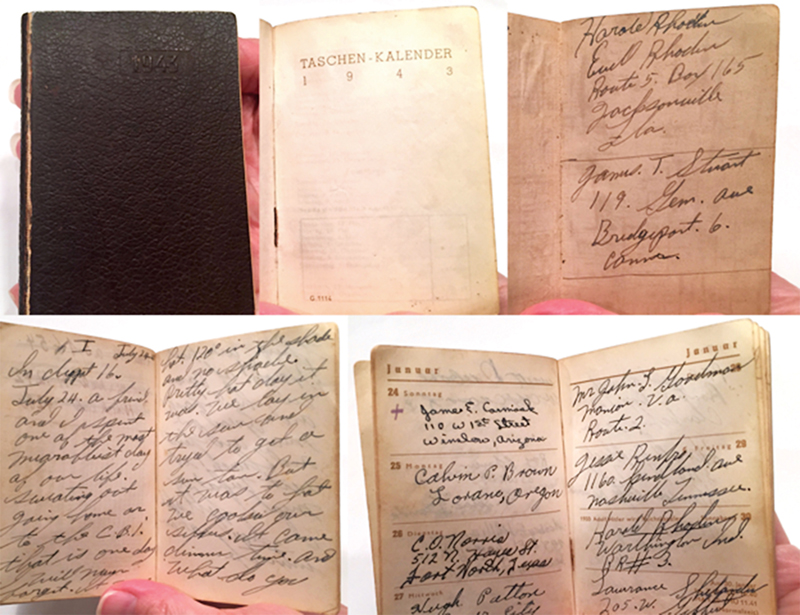by Benjamin Mack-Jackson, Member

At the 2017 106th Infantry Division Reunion, I was entrusted with an incredible historical artifact by the family of WWII veteran Harold Rhoden. Harold Junior Rhoden served as a Private in the 106th Infantry Division, 424th Infantry Regiment, Company F. He enlisted in the army on November 19, 1943, in Camp Blanding, Florida.
Private Rhoden wrote his wartime thoughts, as well as the names and addresses of his buddies, in this captured German soldier’s pocket calendar. The “Taschen-Kalendar” was most likely taken from a German soldier by Rhoden himself. Before being used by Rhoden, a German soldier had made several entries throughout the book in purple ink, including numbers, names, and dates.
On December 16, 1944, Rhoden and the 424th Infantry Regiment were plunged into the Battle of the Bulge, the largest and bloodiest battle fought by the United States in World War II. Private Rhoden undoubtedly saw fierce
combat in late 1944 and early 1945, and this pocket calendar was with him all the way. Seeing ferocious and bloody combat for several months, Private Rhoden was awarded
the Combat Infantryman Badge, a prestigious Army award.
On February 7, 1945, the 424th Infantry Regiment was moved to the vicinity of Hunningen, Germany to conduct defensive patrols. Eleven days after arriving in Hunningen, Private Rhoden was wounded in action, which resulted in him receiving the Purple Heart.
This pocket calendar ultimately survived the war and was brought home from Europe by Private Rhoden as a memory of his time in service. It is a true honor to be the caretaker of this incredible piece of history for educating future generations, and I am humbled that the Rhoden family chose me to do so.
Benjamin Mack-Jackson is the 16-year-old founder of the non-profit organization WWII Veterans History Project (WW2VeteransHistoryProject.com). Throughout the past three years he has interviewed over 50 WWII veterans and created the Traveling Museum of WWII, a mobile history display using artifacts donated by veterans and their families. He has spoken to thousands of people of all ages about the importance of history and remembering the past.
